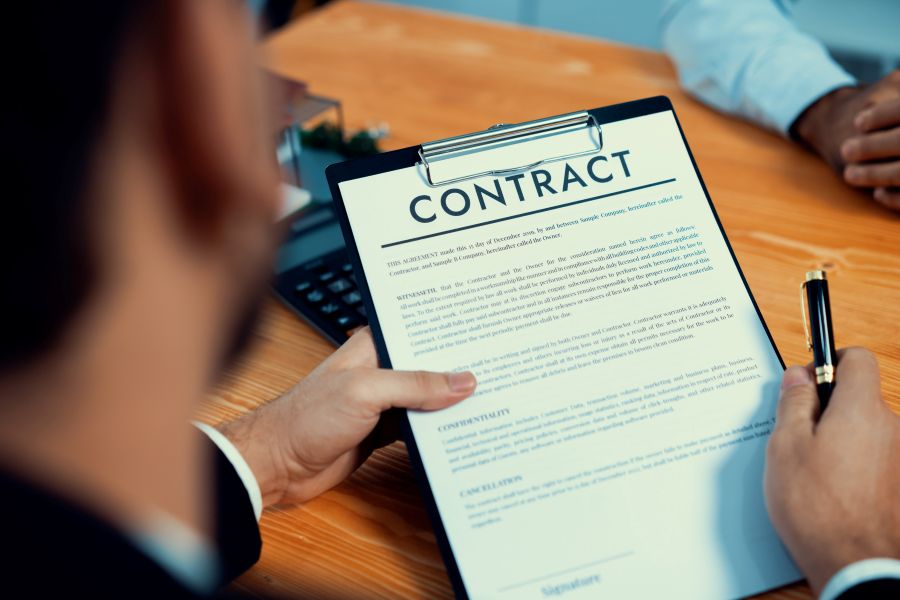So, you've decided to take the leap and set up your own business as a sole trader. Congratulations!
Now, one of the first decisions you'll need to make is choosing a business address. It might seem like a small detail, but you want to make sure you get it right and don’t cause yourself any problems down the line.
In today’s article, we'll walk you through everything you need to know about selecting the perfect business address for your sole trader venture - from the legal requirements to our top tips.
Does it matter what business address you choose as a sole trader?
Before we dive into the nitty-gritty of choosing a business address, let's talk about why - and whether - your business address matters.
Mostly, your business address matters because of a few practical implications. For example, your business address can affect your local search engine rankings and eligibility for certain business licences and permits.
But a well-chosen business address can also instil confidence in your customers and help you establish credibility in your industry. Whether you’re displaying it on your website, or on your emails and letterheads, remember that your business address isn't just where you receive mail; it's also a reflection of your brand and professionalism.
Can sole traders use their home address as their business address?
Yes. If your business is small, you might find it makes most sense to use your home address, and that’s absolutely fine. It’s one of the most common choices for sole traders, as it's convenient, cost-effective, and perfectly acceptable for many small businesses. So feel free to put your home office down as your sole trader business address.
The only legal requirements for your business address are that it must be a physical location and be in the country where you operate. It doesn’t matter whether you live there or not.
{{tax-guide}}
What to consider if you’re renting an external address
If you're not comfortable using your home address or you want to keep your personal and business mail separate, you might prefer to rent an external address.
This could be an office, a coworking space, or a commercial mailbox service. It’s all about what works best for you and your business needs. Here are a few things to think about before you decide:
- Consider your budget
You might want to avoid using your home address as your business address, but not have the funds to splash out on a fancy office in London. And that's okay! There are plenty of budget-friendly options available. Just consider how much you're willing to spend on your business address and explore your options accordingly.
- Location, location, location
When it comes to choosing a business address, location is key. Think about where your target market is located and how important it is for your business to have a physical presence in that area.
If you're primarily an online business, you might not need a central city location. But if you rely on foot traffic or local clientele, being located in a busy commercial area could be beneficial. Consider factors like accessibility, parking and public transport links when weighing up your options.
- Check any legal and regulatory requirements
Before finalising your business address, make sure you're aware of any legal or regulatory requirements that may apply.
For example, some business activities require a physical business address for licensing or registration purposes. And if you're renting office space or using a coworking facility, make sure you understand the terms of your lease agreement and any restrictions that may apply.
- Think about scalability
As your sole trader business grows, your space needs may change. When choosing a business address, think about the scalability of your chosen location. Will it accommodate your future growth plans? Can you easily upgrade or downgrade your space if needed? Planning for growth now can save you time and hassle down the line.
- Consider the image you want to project
Finally, consider the image you want to project with your business address. Your address should align with your brand identity and the perception you want to create in the minds of your customers.
Whether you opt for a sleek city office or a cosy home-based setup, make sure it reflects the personality and values of your business.
- Seek professional advice
If you’re looking for help registering as sole trader or choosing a business address or location, our new service for sole traders, CrunchONE, can help.
CrunchONE combines award-winning self-employed accounting software with support from in-house accredited accountants to simplify your financial admin and help you never worry about tax - or any other sole trader admin - again.
Final thoughts
Choosing a business address as a sole trader can be as simple as registering with your home address. Or, it might be the first exciting step towards making your new external office space official! Either way, we hope our tips help you decide on your new business address.
Remember, you can update your business address and other details on HMRC’s website at any time, so don’t feel you have to choose your business’ permanent home right now. Take your time, weigh up your options, and find the address that's just right for you and your business.

.svg)



.webp)





.avif)






